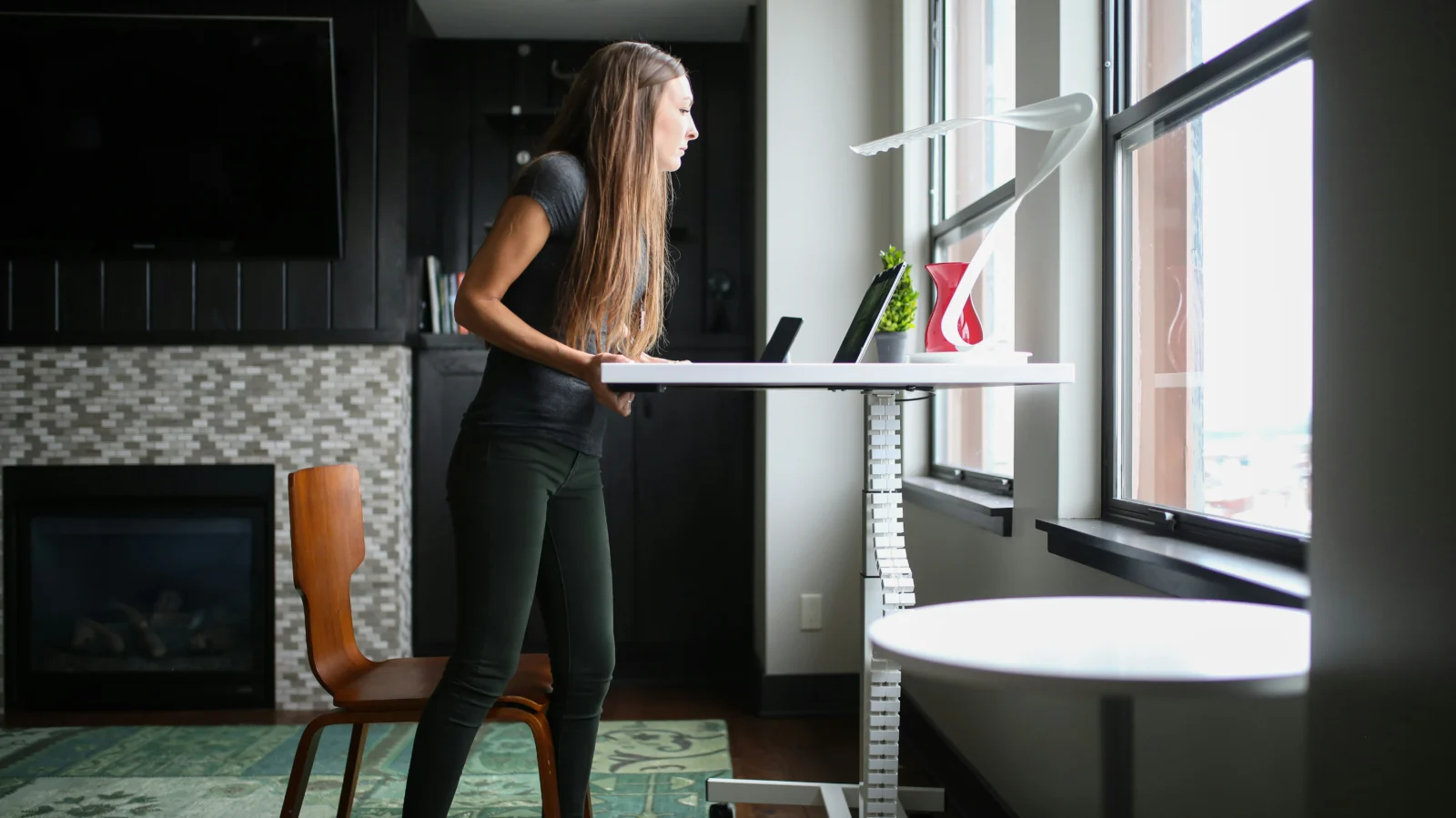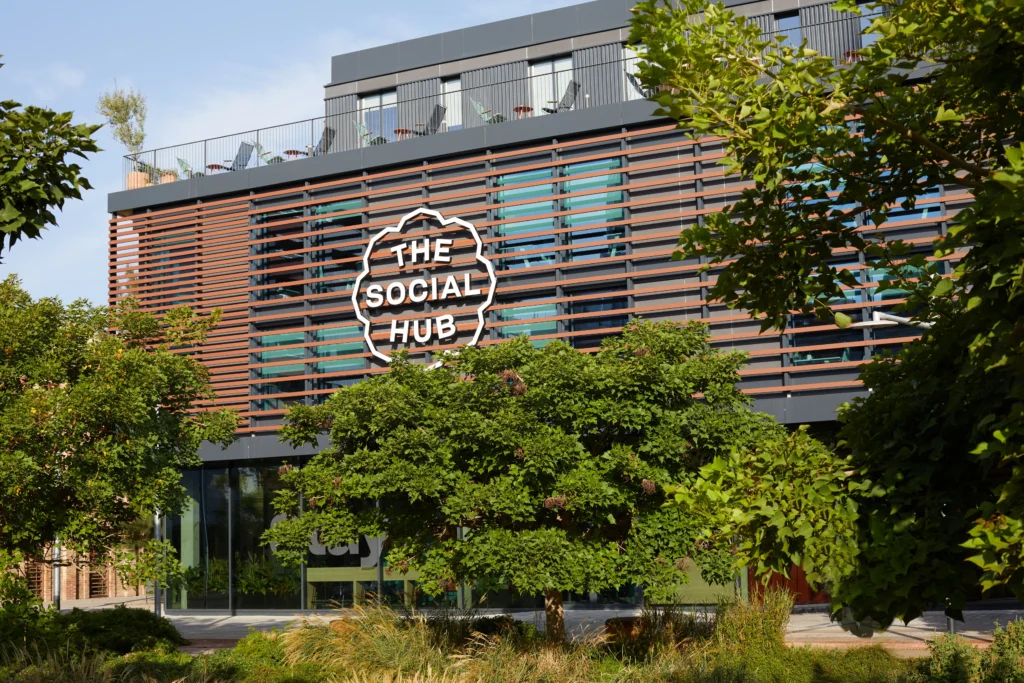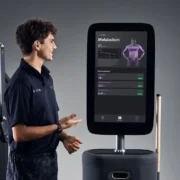Millennials Are Planning Remote Workdays Around Fitness

As return-to-office mandates grow, a new U.K. study finds Millennials are prioritizing fitness as a mental health outlet while working from home. A similar clash is playing out in the U.S.
A new study suggests Millennials may be unwilling to give up one of the key perks of working from home: the ability to pencil in a workout.
A YouGov survey commissioned by The Social Hub found that nearly one in five U.K. Millennials structure remote workdays around exercise, while 19% say they work out specifically to reduce anxiety. The data also shows a strong link between physical activity and mental health, with 22% of Gen Z and 19% of Millennials saying they turn to workouts whenever they feel anxious.
Even connected fitness brands have gotten creative to support remote workers who want to squeeze in a workout. Hydrow, for example, launched “Snack Rows,” bite-sized, five to 15-minute workouts designed to fit between Zoom calls or afternoon coffee breaks and offset the effects of prolonged sitting.
Healthy as it may be, the trend runs against employer calls for more office time and underscores a generational shift: Millennials increasingly see fitness as a non-negotiable mental health practice. And though the data comes from the U.K., it echoes the same clash playing out in the U.S., where workplace flexibility and wellness are increasingly colliding.
In the U.K., several major employers have tightened return-to-office policies this year alone. John Lewis now requires buyers and merchandisers on-site three days a week, Ikea increased its office minimum to 12 days per month and HSBC warned staff they could face pay cuts if they miss attendance targets. Meanwhile, Uber and Asda all rolled out stricter mandates of their own, according to Startups.
The U.S. is seeing a similar shift, with companies including JPMorgan, AT&T, Amazon and Dell toughening their return-to-office policies, joined more recently by Paramount, NBCUniversal, Under Armour and T. Rowe Price.
In-Office Gyms Might Not Be Enough
The growing risk for employers is that return-to-office mandates may sideline what many workers value most: wellness and flexibility. And, as some are learning, simply adding a shiny new gym on-site may not be enough.
Take JPMorgan’s new $3 billion Manhattan headquarters, home to a new “cutting-edge” fitness center with recovery equipment, classes, meditation rooms and nutrition coaches. Access comes at a cost, with employees reportedly required to pay a monthly fee, a decision that has already stirred pushback.
The bank has also been among the most vocal advocates of a full five-day return to the office, even as outcomes appear mixed. An international employee opinion survey earlier this summer found fewer workers than last year said they viewed their health and well-being as a corporate priority, with executives linking the drop to the company’s in-office mandate, Barrons reported.
Entrepreneurs Build New Workplaces
The gap between what companies offer and what employees actually need is where lifestyle hospitality brands like The Social Hub see opportunity. With 21 European locations, the company is weaving wellness into its model, turning insights about Millennials’ workout habits into a new strategy built around “fittainment,” where fitness, entertainment and community collide.
The brand bills itself as “a hotel for everyone,” catering to students, digital nomads, business travelers and long-term residents with stays ranging from a night to a year with co-working spaces, gyms, restaurants and event venues. So far, activations have included a HIIT workout in Rome powered by a live string quartet, a dawn cycling class in Florence and an upcoming rooftop Pilates session in Glasgow.

“We see how people’s needs are changing: fitness is now a non-negotiable, and it happens every hour of the day,” said Tasha Young, chief membership officer at The Social Hub. “Rather than just being for physical health, it’s about mental health too. No one should have to compromise between work, exercising, and supporting their headspace. Our campaign is about giving more people across Europe the opportunity to reflect on this important topic, encouraging them to combine each of them without sacrificing any aspect of their lifestyle.”
The move builds on The Social Hub’s existing wellness infrastructure of 24-hour gyms, curated classes, access to the OpenUp mental health platform and more than 6,000 community-building events across its properties each year.
“We are very proud that our hotels host a diverse community made up of travellers, coworkers and locals who can enjoy spaces and offerings that facilitate a well-rounded lifestyle,” Young said. “We’re always trying to level up and create something special that people can’t get anywhere else.”
As return-to-office mandates tighten on both sides of the Atlantic, Millennials are signaling they won’t compromise on wellness. For employers, the takeaway is clear: fitness and mental health can’t be treated as add-on perks but need to be embedded into workplace culture. Whether companies follow the lead of hospitality brands like The Social Hub could be the difference between workplaces that thrive and those that struggle with low morale and are unable to retain talent.



